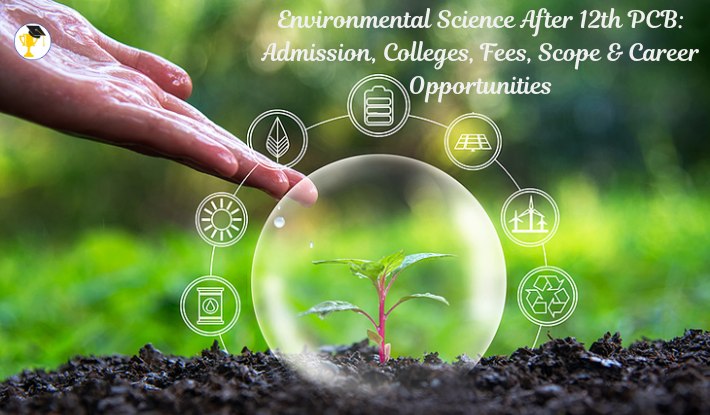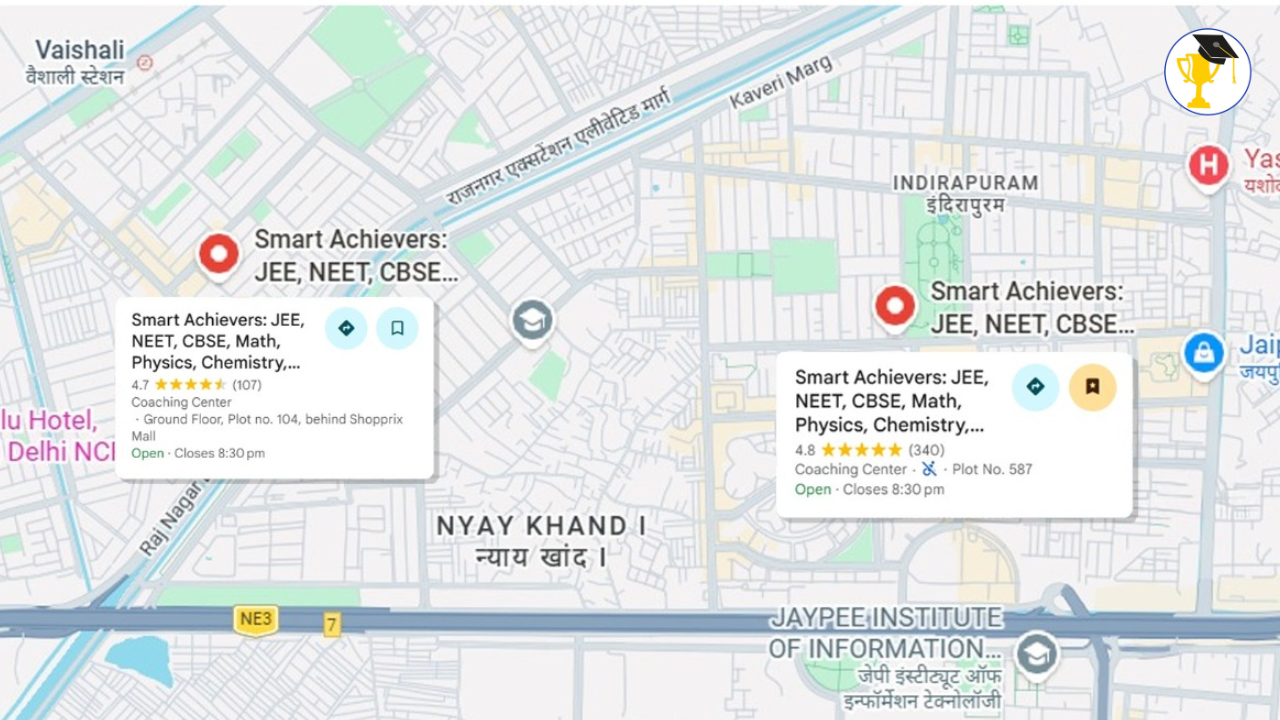Environmental Science After 12th PCB/PCM: Admission, Colleges, Fees, Scope & Career Opportunities
As the world faces challenges like climate change, pollution, biodiversity loss, and resource depletion, the demand for environmental professionals is at an all-time high.
For students who care deeply about nature, sustainability, and global well-being, pursuing Environmental Science after 12th PCB (Physics, Chemistry, Biology) offers a meaningful and rewarding career.
Let’s explore how this course can help you make a difference while building a future-ready profession.
What is Environmental Science?
Environmental Science is a multidisciplinary field that studies the interaction between humans and the natural environment.
It combines biology, chemistry, physics, geography, and social sciences to understand environmental problems and find sustainable solutions.
Environmental scientists work on issues like:
This course trains students to analyze, research, and protect ecosystems for a sustainable future.
Courses in Environmental Science After 12th PCB
Students from the PCB stream are well-suited for Environmental Science since it involves biology, chemistry, and earth sciences.
| Course Name |
Duration |
Level |
| B.Sc. Environmental Science |
3 years |
Undergraduate |
| B.Sc. Ecology and Conservation |
3 years |
Undergraduate |
| B.Sc. Environmental Management |
3 years |
Undergraduate |
| B.Tech. Environmental Engineering |
4 years |
Undergraduate |
| M.Sc. Environmental Science / Ecology |
2 years |
Postgraduate |
| PG Diploma in Environmental Studies |
1 year |
Professional Course |
PCB or PCM students can apply, but biology-based students have an edge in understanding ecological and biological systems.
Eligibility Criteria
-
Qualification: 10+2 with PCB (Physics, Chemistry, Biology)
-
Minimum Marks: 50–60% aggregate
-
Age Limit: Minimum 17 years
-
Entrance Exams:
-
CUET (Common University Entrance Test) – for central universities
-
ICAR AIEEA – for agricultural/environmental colleges
-
State-level exams: KEAM, MHT CET, KCET, etc.
-
Direct admission based on merit in private universities
Top Colleges in India for Environmental Science
Government Colleges
| College |
Location |
| University of Delhi (Miranda House, Hindu College) |
Delhi |
| Banaras Hindu University (BHU) |
Varanasi |
| Fergusson College |
Pune |
| University of Calcutta |
Kolkata |
| Jawaharlal Nehru University (JNU) |
Delhi |
| University of Mysore |
Mysuru |
| Pondicherry University |
Puducherry |
| Central University of Gujarat |
Gandhinagar |
Private Colleges
| College |
Location |
| Amity University |
Noida |
| SRM Institute of Science & Technology |
Chennai |
| Manipal Academy of Higher Education |
Manipal |
| Christ University |
Bangalore |
| Lovely Professional University (LPU) |
Punjab |
| Chandigarh University |
Mohali |
Fee Structure
| Type of Institution |
Annual Fee Range (INR) |
| Government Colleges |
20,000 – 70,000 |
| Private Colleges |
80,000 – 2,50,000 |
Many institutions offer scholarships for students excelling in environmental research or sustainable projects.
Core Subjects and Areas of Study
Environmental Science is an interdisciplinary course that covers both scientific and policy-oriented subjects.
-
Environmental Biology & Ecology
-
Environmental Chemistry
-
Atmospheric Science & Climatology
-
Biodiversity & Conservation
-
Environmental Pollution and Control
-
Waste Management
-
Environmental Impact Assessment (EIA)
-
Remote Sensing & GIS
-
Environmental Laws & Policies
-
Sustainable Development
Students also undergo fieldwork, research projects, and internships with environmental NGOs or research institutions.
Scope and Career Opportunities
The global shift toward sustainability has created a massive demand for environmental scientists, researchers, and consultants.
Graduates can work in government organizations, private industries, NGOs, and research institutes.
Career Roles
-
Environmental Scientist
-
Ecologist
-
Climate Change Analyst
-
Conservation Biologist
-
Environmental Consultant
-
Waste Management Officer
-
Sustainability Officer
-
Wildlife Educator
-
Research Associate
Top Employers
-
Ministry of Environment, Forest and Climate Change (MoEFCC)
-
Pollution Control Boards (CPCB / SPCB)
-
National Environmental Engineering Research Institute (NEERI)
-
Forest Departments
-
NGOs like WWF, Greenpeace, UNEP
-
Environmental Consultancies (AECOM, ERM, Tata Consulting Engineers)
-
Renewable Energy Companies
Global Opportunities
Environmental Science is an internationally recognized discipline, offering excellent career opportunities abroad in research, policy, and conservation.
Top Countries
| Country |
Average Salary (INR Equivalent) (INR) |
Work Areas |
| USA |
50–90 LPA |
Environmental Research, Climate Policy |
| Canada |
35–65 LPA |
Sustainable Energy, Conservation |
| UK |
40–70 LPA |
Environmental Consulting, Law |
| Germany |
40–75 LPA |
Waste & Water Management |
| Australia |
35–65 LPA |
Ecology, Climate Change Projects |
Global agencies like UNEP, UNDP, WWF, FAO, and Greenpeace recruit environmental scientists for research and project management.
Higher Studies After B.Sc. Environmental Science
After graduation, students can pursue:
-
M.Sc. Environmental Science / Environmental Management
-
M.Tech. Environmental Engineering
-
MBA in Sustainability / Environmental Management
-
Ph.D. in Environmental Science / Climate Studies
-
PG Diploma in Environmental Law or Policy
Specializations include:
Salary Range
| Job Role |
Average Salary (INR/year) |
| Environmental Consultant |
4–8 LPA
|
| Research Scientist |
5–10 LPA
|
| Climate Analyst |
6–12 LPA
|
| Waste Management Specialist |
4–9 LPA
|
|
Professor / Environmental Educator
|
6–15 LPA
|
Salaries increase significantly with advanced degrees, experience, and international exposure.
Why Choose Environmental Science After 12th PCB?
Combines biology, chemistry, and earth sciences
High global demand for sustainability experts
Opportunities in government, NGOs, and multinational companies
Chance to contribute to global environmental protection
Interdisciplinary and future-oriented field
Conclusion
Choosing Environmental Science after 12th PCB is not just a career choice — it’s a commitment to the planet.
As the world focuses on sustainability, renewable energy, and conservation, this field offers countless opportunities to create meaningful change.
Whether you work in policy-making, research, or conservation, you’ll play a vital role in building a cleaner, healthier, and greener future.
If you’re passionate about protecting nature, this is your chance to turn that passion into purpose.
Also Read this:
https://smartachievers.online/career-options-after-pcb-without-neet
https://smartachievers.online/career-options-after-pcm-without-jee-scope-courses
 STUDY MATERIALS
STUDY MATERIALS
 COURSES
COURSES
 MORE
MORE






















